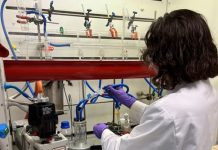The company has developed new iron oxide battery grades for the synthesis of cathode material, representing a competitive and sustainable alternative to Asian supply chains.
Specialty chemicals company LANXESS has received the ICIS Innovation Award 2024 for its project to develop and produce lithium iron phosphate (LFP) as a battery cathode material. The award recognises achievements in the development of Western value chains for LFP batteries.
The company – which has developed new high-quality iron oxides for use in lithium iron phosphate (LFP) batteries – received the prestigious award in the category ‘Best Product Innovation from a Large Company’.
LFP batteries are a safe and cost-effective type of battery with high cycle and thermal stability. They are mainly used for electric cars and stationary energy storage systems.
The award-winning iron oxide battery grades, traded under the brand name Bayoxide, serve as customised raw materials for the synthesis of the cathode material LFP. These products are tailored to the requirements of LFP manufacturers and enable high battery quality, performance and efficiency.
“This award confirms our innovative strength in the field of sustainable battery technology. With our Bayoxide battery grades, we are making a significant contribution to the electrification of mobility and the energy transition,” says Michael Ertl, head of the LANXESS Inorganic Pigments business unit.
“Our goal is to offer our customers in Europe and North America a competitive and environmentally friendly alternative to the dominant Asian supply chains for LFP.”
Further precursor for LFP batteries
LANXESS also plans to offer iron phosphate as a precursor for LFP. So far, there is hardly sufficient capacity in Europe for iron phosphate that can be used for the production of LFP.
The company is currently examining the possibility of installing its own production capacities in the existing plant setup. It can draw on proven facilities at its German site, making it the only major producer in Europe and one of the few worldwide.
A feasibility study has shown that the technology is ready for large-scale production and offers an economical and sustainable alternative to the LFP production process currently used in China. The Chinese process is based on the use of iron sulfate and produces wastewater with a high salt content.
The LANXESS process, on the other hand, extracts the iron phosphate directly from iron and phosphoric acid. As a result, neither climate-damaging emissions of nitrogen and sulfur oxides nor wastewater with high salt loads are generated.










